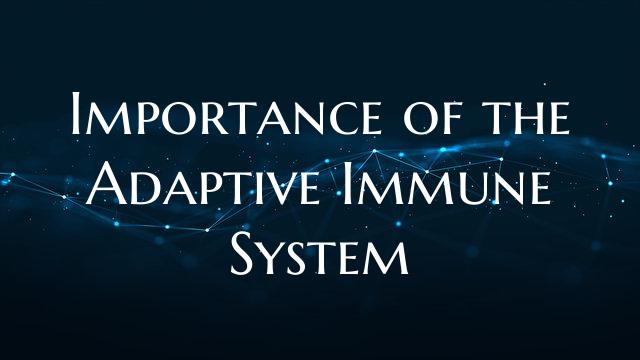Importance of the Adaptive Immune System
The adaptive immune system is a sophisticated defense mechanism in the human body that plays a crucial role in identifying, targeting, and eliminating specific pathogens to maintain overall health and well-being. Complementing the innate immune system, which provides immediate, nonspecific protection against various threats, the adaptive immune response is tailored and highly specialized, capable of recognizing specific antigens and mounting a precise defense against them.
One of the primary functions of the adaptive immune system is to establish immunological memory. When the body encounters a pathogen for the first time, specialized cells called lymphocytes, including T cells and B cells, are activated to combat the invader. Through a complex process of detection and response, these lymphocytes work together to neutralize the threat and eliminate infected cells. Importantly, upon successful eradication of the pathogen, a subset of memory cells is created to "remember" the specific antigen. This memory is the cornerstone of the adaptive immune system's effectiveness in providing long-lasting protection against future encounters with the same pathogen.
Another critical aspect of the adaptive immune system is its ability to generate a diverse range of immune responses. Through a diverse repertoire of T cell receptors and antibodies produced by B cells, the adaptive immune system can recognize an immense array of antigens, including those encountered from pathogenic microorganisms, cancerous cells, and even self-antigens in the case of autoimmune diseases. This versatility allows the adaptive immune system to tailor its response to the specific threat at hand, deploying a targeted defense mechanism that is both powerful and precise.
Furthermore, the adaptive immune system plays a pivotal role in maintaining immune homeostasis and preventing autoimmunity. Tolerance mechanisms within the adaptive immune system help differentiate between "self" and "non-self" antigens, ensuring that the body's defense system does not mistakenly attack its own cells and tissues. Dysregulation of the adaptive immune response can lead to autoimmune diseases, where the immune system erroneously targets healthy cells, causing inflammation and tissue damage.
In conclusion, the adaptive immune system is a cornerstone of the body's defense mechanisms, providing tailored and targeted protection against a wide range of pathogens while maintaining immune homeostasis. Its ability to establish immunological memory, generate diverse immune responses, and promote self-tolerance underscores its critical importance in safeguarding health and well-being. Understanding and appreciating the complexities of the adaptive immune system is essential in developing strategies to enhance immune function, combat infectious diseases, and advance medical treatments for various immune-related disorders.

